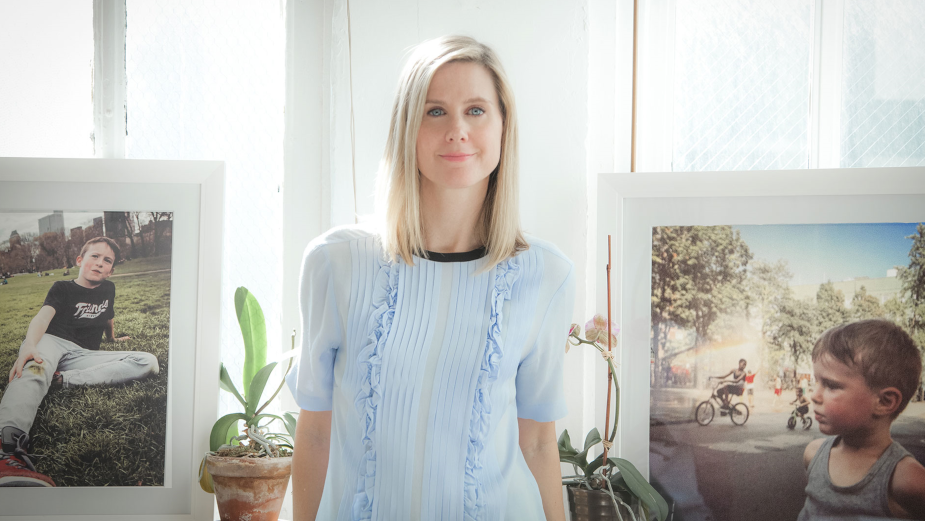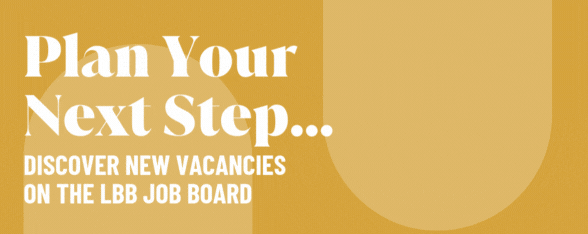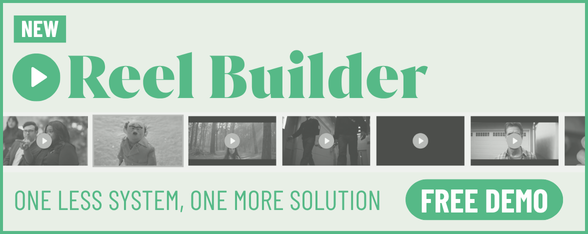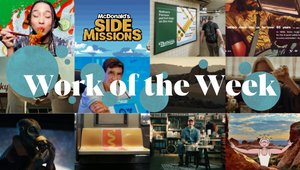
Meet Your Makers: Building Trusting Foundations with Sarah Roebuck

Sarah Roebuck is an executive producer at Final Cut. A Texas transplant by way of California, Sarah’s career spans more than two decades across the industry, in roles ranging from Producer and then Director of Integrated Production Recruiting at JWT to multiple Executive Producer roles at production and post-production companies including East Pleasant, Pleasant Post, EP*Vision, and Imaginary Forces. Sarah leads the prestigious editing house’s New York office with her signature mix of warmth and aplomb.
LBB> What first attracted you to production - and has it been an industry you’ve always worked in or did you come to it from another area?
Sarah> I was lucky enough to grow up having three wonderful parents. My mom worked in PR for Francis Ford Coppola, my dad was in sales, and my stepdad was a tour manager for rock bands. I don’t think I fully realized it then, but films, music, communication, and logistics have always been a part of my life. Add that combo to me being a total Gen-X 80s latch-key kid whose babysitter was the TV and all the glorious non-skippable commercials it brought with it. Commercials were just awesome little mini-films to me, so when I discovered I could study them in college, I was all in. Thus began my future as an Ad Nerd…
LBB> What was your first role in the production world and how did this experience influence how you think about production and how you grew your career?
Sarah> While attending college in Dallas, I interned at a few different agencies. I had nothing to do with production at that time, yet I found myself living in the reel library during every lunch hour and break, obsessing over the 3/4” reels and watching everything directors like Joe Pytka and Tarsem directed. I couldn’t get enough! Knowing I wanted to work in advertising but still trying to find the right fit, I bought a one-way ticket to NYC and landed a job as the assistant to the then Head of Production at JWT, Stephanie Apt, who would then go on to be the President of Final Cut.
LBB> How did you learn to be a producer?
Sarah> Mentoring younger producers was incredibly important at JWT. It was the entire ethos of the department. While there was a head of production, there were also directors of production we were assigned to who would guide and support us along the way. The younger producers would participate in a Production Seminar every summer, almost like Production 101. We’d be given a script, briefed, and then have to do a full director, editor, VFX, and music search. We’d assemble a budget, schedule, and production approach and present it to the head of production, directors of production, ECDs, and sometimes the CCO. They would, of course, hammer us with questions and challenge our approach. It was terrifying and completely invigorating at the same time! A great foundation for prepping an actual production.
That said, there was nothing better than an on-set experience. Again, JWT was amazing at giving the Associate Producers opportunities to travel with the lead Producer to set or location (someone had to carry 500 gold SAG contracts and the ethernet cable in their suitcase!). Some of the best experiences you can get as a young producer is to observe and listen to how someone above you gets shit done.
LBB> Looking back to the beginning of your career, can you tell us about a production you were involved in where you really had to dig deep and that really helped you to grow as a producer?
Sarah> I was assisting one of our future directors of production, Terry Brogan, and we were producing a massive global campaign for KPMG with Radical Media. Terry was one of three EPs on the job, along with Darcey Cherubini (also a future Director of Production!) and Bruce Davidson. Terry was producing the spot that needed to shoot worldwide and had KPMG employees flying to various locations from around the globe. It was an absolute beast of a job with an incredible amount of moving parts. I think I was all of 23 years old and had literally never left the country, so this was hands down, the most exciting experience I’d ever had.
We shot in Nairobi, Marrakech, Madrid, Paris, and Berlin and ended up in London editing with none other than Final Cut.
When we got to Nairobi, I took the aforementioned ethernet cable and parked myself in the production office with the Radical production team. I loved their energy and constant movement as they executed the orders from their Line Producer. I was prepared to live there until Terry eventually pulled me out and said, “I did not bring you across the globe so you could sit in a production office. You need to get out, and you need to experience this. This is a once-in-a-lifetime opportunity.”
It was the most rewarding production experience I’ve ever had, especially because Terry was the one making all the hard decisions, and I was able to just watch how he did it. I left JWT soon after this shoot to take a leave of absence and work on a weekly TV show for Radical Media called The Life for ESPN. That production office just kept calling to me…
LBB> A good producer should be able to produce for any medium, from film to events to digital experience. Do you agree or disagree with this statement? Why/why not?
Sarah> Ugh, this one is hard. I think you can be a brilliant commercial producer but maybe not the best events producer. There’s nothing wrong with honing in on what you can do well. That said, there are some fundamentals to being a good producer: not only do we know how to get shit done, but we also know when we need to lean on someone who is more of an expert than we are to get said shit done.
LBB> What’s your favourite thing about production and why?
Sarah> “How the f*** are we going to do this?” This question usually leads to a wild experience, but a shared wild experience, and there’s nothing like being in the trenches on a difficult job that makes the end product that much more rewarding.
LBB> How has production changed since you started your career?
Sarah> There’s a lot less paper these days! Long gone are those beautiful production binders I so dearly loved. And, of course, that little thing we call the Digital revolution. We were shooting on film when I started my career, and I saw the shift to digital happen right before my eyes. Hardrives that were the size of TVs are now the size of a pack of gum. Does anyone remember convincing JR at Creative Services not to make you cut your film negative before a colour session?
LBB> And what has stayed the same?
Sarah> We’re still making beautiful/funny/emotional/powerful pieces of content. And now we’re shooting on film again.
LBB> What do you think is the key to being an effective producer - and is it something that’s innate or something that can be learned?
Sarah> Listening, communication, and levity. Partly innate, but certainly skills to be honed over the years.
LBB> Which production project from across your career are you most proud of and why?
Sarah> The New York Times campaign, 'The Truth Is Worth It,' that Jim Helton edited. That project started with my favourite question (see above) and turned out to be the most rewarding from both the work itself and the relationships formed with the teams at Droga5 and Furlined. Jim and the entire Final Cut and Significant Others crew worked tirelessly over almost nine months on that job. Not only were the spots incredibly meaningful and artfully crafted, but the campaign was also one of the most awarded campaigns in the history of advertising.
LBB> And in terms of recent work, which projects have you found to be particularly exciting or have presented particularly interesting production challenges?
Sarah> I’ve really enjoyed Matt Carter’s recent work with the directing team ILLIMITÉWORLD at Love Song. Aus and Marleaux have a very fluid approach to directing, leading Matt to work closely with them in the edit and discover the best creative story. There’s nothing textbook about it, and that makes it fun.
LBB> Producers always have the best stories. What’s the hairiest / most insane situation you’ve found yourself in and how did you work your way out of it?
Sarah> I had to break my creative director out of a Thai jail with nothing but my trusty ethernet cable.
LBB> What are your personal ambitions or aspirations as a producer?
Sarah> As an executive producer, it’s continuing to foster new talent. One of the things that I’m the most inspired by is the next generation of rising editors and rising producers. I’ve been working in advertising and production for over 25 years, so I’ve seen many people come and go, but I’ve also seen them rise through the ranks, which is a huge inspiration. When I meet someone who has recently graduated from college, and they have that spark - they get the elusive 'it' - it completely re-energises me and excites me about what we do all over again.
LBB> As a producer your brain must have a neverending “to do” list. How do you switch off? What do you do to relax?
Sarah> Copious amount of wine. That and good books, good meals with friends and family, long walks, holiday-themed puzzles, and films and TV shows I can get lost in. If it has a dragon, I’ll watch it.
LBB> Producers are problem solvers. What personally fuels your curiosity and drive?
Sarah> No two jobs are the same. Tomorrow will bring an entirely different set of challenges than today. What works with one person will absolutely not work with another. I love people and figuring things out with them and for them. And then we get to eat, drink and be merry!
LBB> What advice would you give to people who are interested in becoming a producer?
Sarah> My advice is to be curious and genuinely interested. People can feel that quality when you’re speaking with them. If somebody is telling you about a project - or anything at all! - show them you care by focusing, listening, and asking good questions. That’s always a good place to start -- just be inquisitive.
LBB> From your experience what are the ingredients for a successful production?
Sarah> Thoughtfulness, communication, trust, and respect. Without that foundation, you could have a million-dollar job that will be a total bust.
LBB> What’s the key to a successful production-client relationship?
Sarah> See above. 🙂
LBB> One specifically for EPs: Producers are naturally hands on - they have to be. How do you balance that in the more managerial role of an EP?
Sarah> You definitely have to let go. As an EP, it can feel invigorating to have an opportunity to go back to your roots and produce something. But then, all of a sudden, you need to be doing something else, like a management call or a review, so the project you’re holding on to so tightly ends up suffering. Knowing that a project may not be best served by having me work on it so closely frees me to step away and do all the other things I love doing -- like taking care of our people and clients.
















